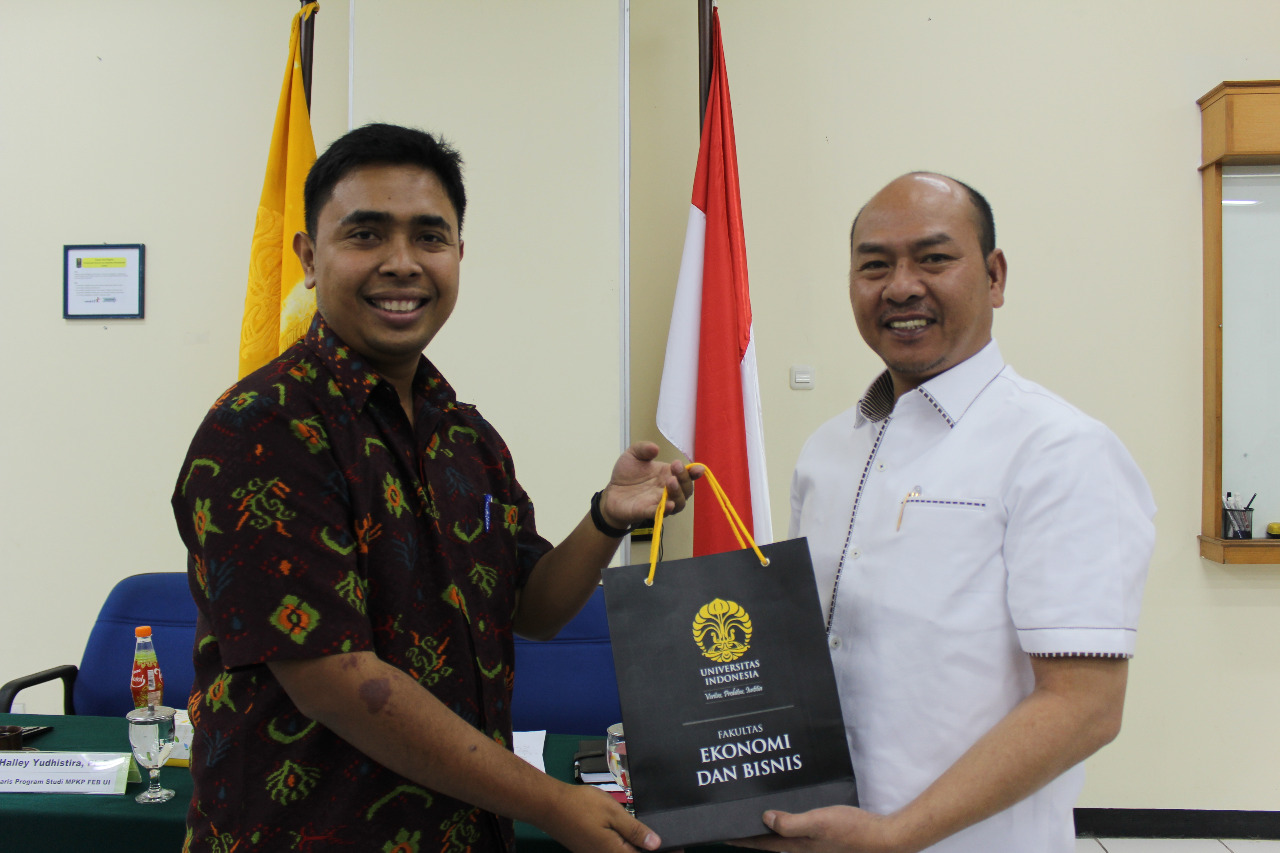Delli Asterina ~ Public Relation FEB UI
Regent of North Tapanuli, Drs. Nikson Nababan, M. Si, was a guest speaker at the Public Lecture at the Faculty of Economics and Business, University of Indonesia (FEB UI) Masters in Economic Planning and Development Policy (MPKP FEB UI).
The event was opened by the Secretary of the FEB UI MPKP Study Program Muhammad Halley Yudhistira, Ph.D. In his remarks Yudhistira expressed his gratitude for the arrival of the North Tapanuli Regent along with the leadership and Regional Secretary of North Tapanuli and conveyed to MPKP FEB UI students to study the local government system, development sector and regional economy in North Tapanuli.
Regent Nikson explained the Acceleration of Regional Economic Development: Study of North Tapanuli, located at MPKP Building FEB UI UI Salemba Campus, Central Jakarta, Wednesday (11/27/2019).
In front of the MPKP FEB UI students, the Regent, accompanied by Regional Secretary Indra Simaremare, first explained the general picture of the condition of North Tapanuli Regency and the potential of the area.
At the beginning of his tenure as regent, said Nikson, the first step taken was to identify and map out the problem. One of them is the problem of farmers who are the work of the majority of the people of North Tapanuli. Furthermore, the road infrastructure sector and the health sector, as well as education.
“These 4 sectors are the main focus of our regional budget,” said the Regent, starting his presentation.
The Regent explained that the policy adopted to realize one of its mission is North Tapanuli as a food granary through the post-harvest subsidized fertilizer program, an agricultural commodity auction market supported by a price guarantee program. Then explained also the agricultural mechanization program and agricultural technology by providing agricultural tools that can be used by farmer groups for free as well as providing agricultural seeds / seeds.
To support the smooth running of the agricultural business, the Regent considered that road infrastructure development was needed. Then it was followed up with the procurement of heavy equipment to open interconnection roads between villages and also between hamlets.
“If the infrastructure is available in the village, then the community will think more carefully to migrate to the city,” continued the Regent.
In the health sector, this is done by creating a 24-hour Puskesmas service policy and providing ambulances, adding incentives for medical workers and health workers, reforming public hospitals and providing specialist doctors.
Whereas in the education sector, in addition to physical development, the equal distribution of teachers to remote villages and the addition of teacher incentives are also the main focus.
In addition to the 4 sectors as the main focus, the Regent also described the efforts that have been made such as fostering the elderly community including the provision of free medical treatment, encouraging Village-Owned Enterprises (BUMDes) to be able to become the economic wheels in the village and also re-optimizing cooperatives to support Micro, Small and Medium Enterprises especially in coaching Ulos Weaving so that it is getting better quality.
Various attempts have been made to improve the capabilities of Ulos weavers and promote the product so that it is increasingly in demand by the wider community. In terms of developing the potential of natural resources, a bottled water management company was established.
The Regent further said that he was currently fighting for a number of things, in the future standing Tapanuli State University, because it would provide increased economic turnaround in Tapanuli, the construction of the Lake Toba toll road to Central Tapanuli to increase tourism and open roads to Sei Mangkei as an economic area. So that the economy in North Tapanuli is increasingly open.
At the end of his presentation, which was followed by discussion and question and answer, the Regent invited MPKP FEB UI students to visit North Tapanuli.

